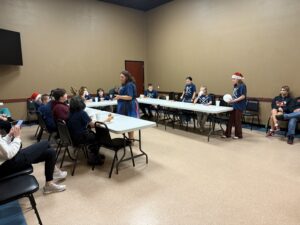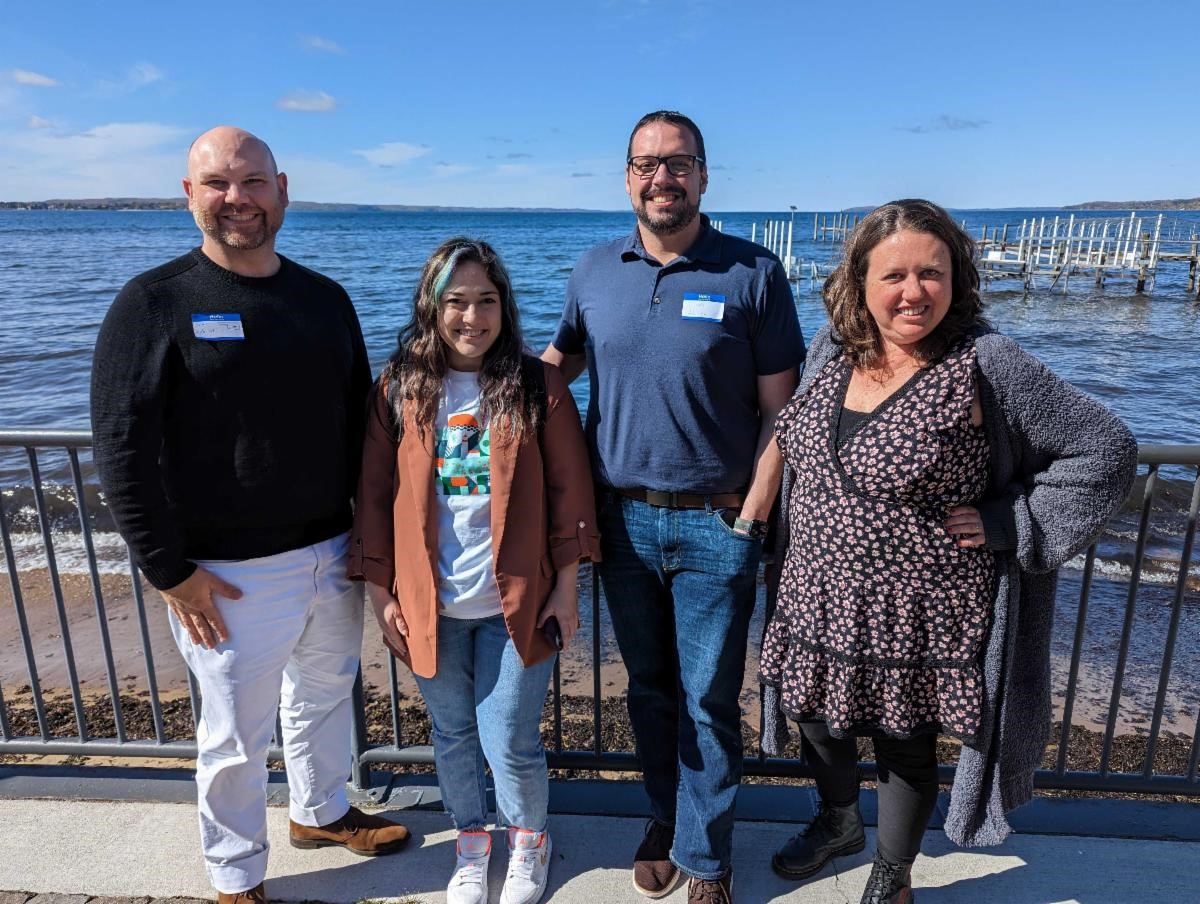
Opportunities and Possibilities: The Ada Jobs Foundation at the 2023 Rural Innovation Network Summit
May 12, 2023 by Jessika Leatherbury
By: Sunnie Dawn Baker
 The mission of the Ada Jobs Foundation is to advocate on behalf of businesses and residents to promote a vibrant community and prosperous local economy. While there are many ways to approach these goals, it is evident that in many communities, including our own, an innovation-based economy can have transformative potential. The support of entrepreneurs focused on science and technology can add vibrancy to our communities, while also providing opportunities for prosperity, both for the entrepreneurs and those who will fill the jobs that will inevitably be created. For rural communities like Ada, this is an economic development strategy that can provide unique opportunities to help better the community as a whole and can overcome the challenge of remote geographies and smaller populations. Matt Dunne, Executive Director and Founder of the Center on Rural Innovation explains:
The mission of the Ada Jobs Foundation is to advocate on behalf of businesses and residents to promote a vibrant community and prosperous local economy. While there are many ways to approach these goals, it is evident that in many communities, including our own, an innovation-based economy can have transformative potential. The support of entrepreneurs focused on science and technology can add vibrancy to our communities, while also providing opportunities for prosperity, both for the entrepreneurs and those who will fill the jobs that will inevitably be created. For rural communities like Ada, this is an economic development strategy that can provide unique opportunities to help better the community as a whole and can overcome the challenge of remote geographies and smaller populations. Matt Dunne, Executive Director and Founder of the Center on Rural Innovation explains:
Tech entrepreneurship offers rural communities a unique chance to create good-paying jobs and build wealth locally. The tech economy has been the fastest growing sector of the economy for years, and technology is the factor that gives a company the best chance to scale quickly. Add to this the multiplier effect that comes with tech employment — each tech job generally leads to an additional three to five jobs in a community — and tech startups present a high-value pathway to economic development.
This is why, on May 1st, while the weather was beautiful in Ada, Jim Eldridge, Jake Cantrell, Ashia Todd, and I traveled straight into a wintry mix that riled up the waves of Lake Michigan, in Traverse City, Michigan, for the 2023 Rural Innovation Network Summit.
The Rural Innovation Network is a branch of the Center on Rural Innovation which focuses on the development of tech startups and entrepreneurship, specifically in rural areas, and training a workforce that can have the ability to either start their own innovation centered businesses or have good jobs in these new enterprises. One of the main purposes of having a “network” is to connect these rural communities to one another in order to share their ideas, challenges, and successes. Even though, as Matt Dunne, founder of the Center on Rural Innovation, says, “If you have seen one rural community…you have seen one rural community,” there are still ways that these communities can help each other succeed. It isn’t about competition, it is about collaboration, as each community has their own strengths to lend to the network. Ada, Oklahoma, is fortunate to be a part of this network, and our entire team from Ada was excited to have the chance to meet with these other communities in person at the Summit.
For two and a half days, the four of us learned more about how to approach rural innovation while also connecting with other communities. The Rural Innovation Network consists of 38 communities from all over the country, each in their own stage of development when it comes to rural innovation. Communities like Cape Girardeau, Missouri, have Codefi which is a co-working space focusing on the digital economy, supporting entrepreneurs and training community members in the technological skills they would need to have good jobs in these fields. Many other communities also have co-working spaces, incubators, and accelerators. As a community that is on the verge of opening our own co-working spaces and recruiting for our first accelerator cohort, it was significant to learn from these other communities to see what has worked and what hasn’t worked.
Of the communities represented by the Rural Innovation Network, twelve have been awarded the Build to Scale grant by the EDA: Waterville, Maine, and Platteville, Wisconsin, in 2020, Cedar City, Utah, and Shenandoah Valley, Virginia, joined Ada in receiving the grant in 2021, and then seven more in 2022—Aberdeen, South Dakota, Portsmouth, Ohio, Red Wing, Minnesota, Rutland, Vermont, Taos, New Mexico, and a joint application from Springfield and Randolph, Vermont. Because the grant recipients span three years, each community is in their own phase of development. At the Summit, this provided even more opportunities for the communities involved as they could ask each other questions and coordinate strategies. In fact, many of the newest recipients had looked at the Ada Jobs Foundation application in preparation for creating their own. For more information about the Ada Jobs Foundation’s approach to Build to Scale and the great things it can do in our community, click here.
In addition to the opportunities to learn about other accelerator programs, Cantrell, the Investment Associate hired under the Build to Scale grant, was able to connect with other individuals and groups that focus on the funding aspect of this process. Ashia Todd, the Startup Community Manager, who focuses on networking, events, and marketing, was able to learn about the events of other communities, their victories, their failures, and different ways that they determine success. I was able to learn more about the best ways to connect and engage with our community, as well as opening up the possibilities of expanding that reach to make sure that more people are aware of the programs and opportunities available in rural innovation; these are opportunities that are not restricted to a certain group or segment of the community; they are opportunities that can also be available to traditionally underserved populations.
While Eldridge already knew many of the communities involved in the Rural Innovation Network, this gave Cantrell, Todd, and me the opportunity to make these connections as well. This network then provides a wide group of people across the country that can be called on for advice or ideas. Sometimes it is easy to see our world through a narrow lens when we are so immersed in the day-to-day activities of our communities. We can all be so focused on our goals that it can be hard to see beyond them. However, by making these connections with other people, it is possible to get a fresh perspective on our situations, seeing the world through the eyes of others. Breyana Ray, Director of the Rural Innovation Network explains the importance of gathering together at the Summit, saying, “face-to-face interactions allow community members to develop deeper and more meaningful relationships with one another. It fosters a sense of belonging and camaraderie, strengthening social cohesion and collaboration within our Network of communities.”
The 2023 Rural Innovation Network Summit allowed us all to see our mission more clearly while sharing in the challenges and celebrations that we all face. It was filled with opportunities and possibilities as we all came away with new ways to approach rural innovation. These tools will only help us as we move forward with our goals of promoting a vibrant community and a prosperous local economy, building a future that is better for all.
Sign up to receive more news from the Ada Jobs Foundation HERE!
Written by
Jessika Leatherbury
You may also interested in:

Adapt and Overcome: Allison Poe’s Recipe for Resilience and Growth
By: Sunnie Dawn Baker Allison Poe has always followed her feet. She waits for the signs to appear and, once she recognizes them, she travels that path, and has never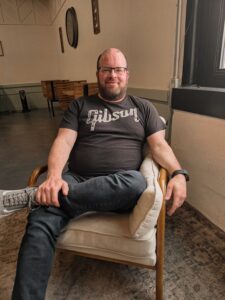
Jeff Warren: A Life in Sound, Vision, and Storytelling
By: Sunnie Dawn Baker When Jeff Warren got involved in the Houston music scene as a teenager, he had no clue where his path would lead. Now, nearly thirty years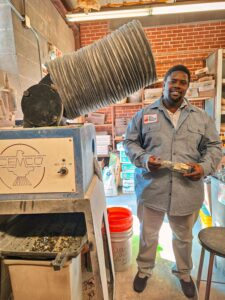
From Pitch to Progress: ECU's Glass Recycling Program Turns Waste into Opportunity
By: Sunnie Dawn Baker In 2018, Dr. Christine Pappas competed in Ada Jobs Foundation’s Big Pitch Competition by promoting grinding glass bottles into sand. She won the Big Pitch that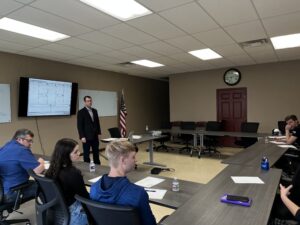
The Importance of Customer Discovery: Know Your Audience and Know Your Market
By: Sunnie Dawn Baker Entrepreneurs and small business owners must consider many factors to achieve success, with their target market being one of the most crucial. Sometimes, when people are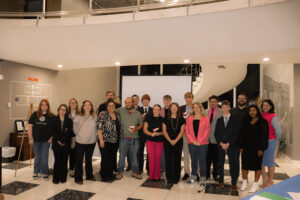
What Does Economic Development Do for You? The Significance of the Economic Multiplier
By: Sunnie Dawn Baker People often find the term “economic development” vague and confusing. Understanding how economic development works and benefits the community can be challenging. Though there are many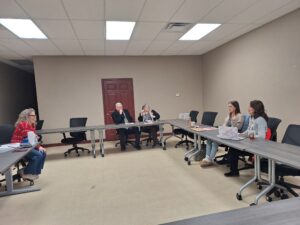
Helping Entrepreneurs One Workshop at a Time: Lauri Rowe and QuickBooks for Small Businesses
Entrepreneurs tend to be filled with passion and big ideas. They have found a solution to a problem they see in the world, and they barrel ahead, excited for their
Hunter Cook: Technology, Entrepreneurship, and the Written Word
By: Sunnie Dawn Baker Hunter Cook started writing when he was seven years old. At first, he wanted to write comic books, but then he realized he couldn’t draw. He
Empowering Native Artists: FAME App Brings Innovation to First American E-Commerce
By: Sunnie Dawn Baker Entrepreneurs are problem solvers. They are constantly striving for solutions to issues they see in the world or in their own lives. In the case of
Learn, Connect, and Grow: 2025 Workshops for Aspiring and Current Business Owners
By: Sunnie Dawn Baker A new year brings new possibilities, and, at the Ada Jobs Foundation, it also brings a new round of programming and workshops. As the local Economic